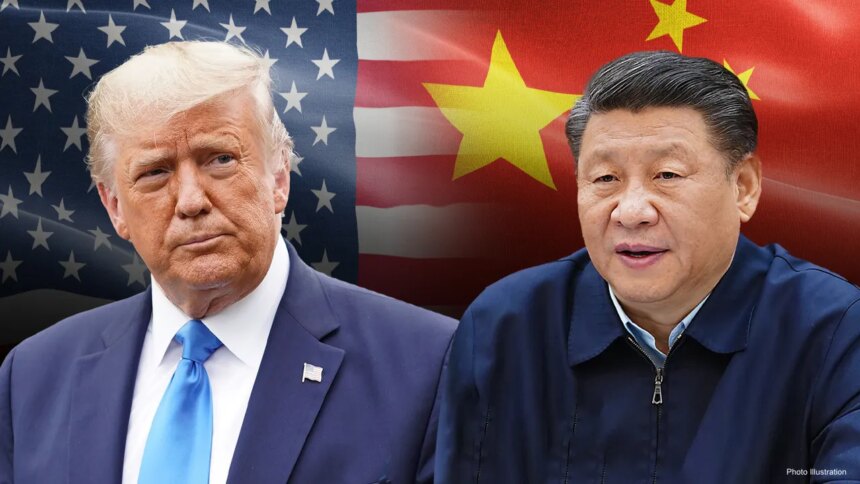In a significant escalation of tensions between the United States and China, former Assistant Secretary for International Markets at the U.S. Treasury, Mitchell Silk, appeared on ‘Varney & Co.’ to discuss the implications of China’s struggling economy and how it might affect ongoing high-stakes trade negotiations. The backdrop of this conversation was a startling announcement from former President Donald Trump regarding impending tariffs on Chinese imports.
On Friday, Trump revealed via his platform Truth Social that the U.S. would implement an additional 100% tariff on imports from China starting November 1, 2025. This proclamation followed warnings from Trump about potential new tariffs and a suggestion to cancel an upcoming meeting with Chinese President Xi Jinping, amid claims that China was planning significant export controls on essential rare earth minerals.
In his post, Trump stated, “Starting November 1st, 2025 (or sooner, depending on any further actions or changes taken by China), the United States of America will impose a Tariff of 100% on China, over and above any Tariff that they are currently paying.” He further elaborated that, on the same date, the U.S. would enforce export controls on critical software.
Arguing that China’s trade position has become increasingly aggressive, Trump described recent actions by China as “extremely hostile.” He claimed that Beijing had sent a letter to the international community indicating its intent to impose large-scale export controls on nearly all products, not only those manufactured within its borders. According to Trump, this move would affect all nations globally and was indicative of a long-planned strategy by China.
The market reacted sharply to these developments, with the S&P 500 plunging over 2%, marking its most significant single-day drop since April. Analysts noted that the escalation came after China announced expanded export controls on rare earth elements—critical materials for advanced technologies such as semiconductors and smartphones—of which it provides over 90% of the world’s supply.
The tension between the two economic powerhouses is palpable, especially as Trump accused China of hostility and taking retroactive control over the production and distribution of rare earths. He described the situation as a “moral disgrace” in international trade interactions.
As the U.S. and China continue to navigate this complex landscape, the ramifications of tariffs and export controls could have far-reaching impacts on global markets and the technology sector, sparking fears of a renewed trade war reminiscent of previous confrontations. The developments signal a crucial turning point as both nations grapple with the geopolitical and economic stakes involved.






